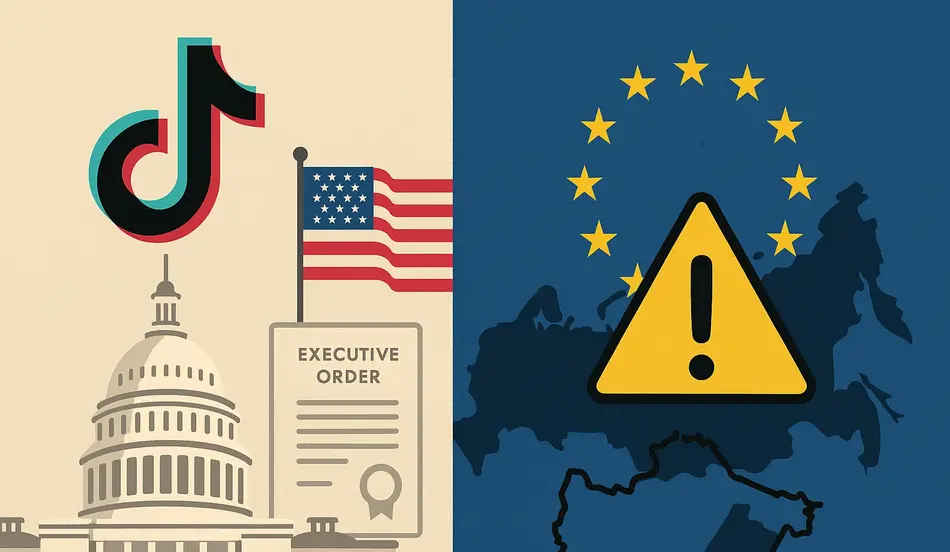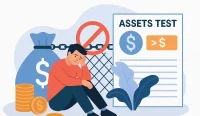Trump approves US TikTok deal with executive order, Europe warns Russia as geopolitical tensions reach new heights with NATO threatening to shoot down Russian jets violating European airspace. The $14 billion TikTok deal represents a significant shift in US-China relations, while Europe’s warnings to Russia mark a dangerous escalation in the ongoing conflict over Ukraine.
The executive order signed by President Trump allows a consortium of American investors including Silverlake, Oracle, and MGX to acquire TikTok’s US operations from ByteDance, with Oracle overseeing the algorithm. This deal, valued at $14 billion, comes as Chinese President Xi Jinping has reportedly given his approval, though Beijing has yet to provide official confirmation.
Meanwhile, European nations are taking an unprecedented stance against Russian airspace violations, with diplomats warning Moscow that they will not hesitate to shoot down Russian jets that cross into European territory. This represents a significant escalation in the ongoing conflict and marks a new phase in NATO’s response to Russian aggression.
The convergence of these two major developments highlights the complex web of international relations that’s reshaping global politics. The TikTok deal represents a potential breakthrough in US-China trade relations, while Europe’s warnings to Russia signal a hardening stance against continued aggression in Eastern Europe.
Global Deals, Global Talent
From TikTok’s US deal to Europe’s geopolitical warnings, global events are reshaping industries and opportunities. Employers who act now can secure talent ready to innovate and adapt in uncertain times. Post your job on WhatJobs today and connect with professionals prepared for a rapidly changing world.
Post a Job Free for 30 Days →The TikTok Deal: A $14 Billion Gamble
The TikTok deal represents one of the most significant technology acquisitions in recent history, with a consortium of American investors acquiring 45% of the company’s US operations. The deal values TikTok at approximately $14 billion, significantly lower than previous projections of up to $40 billion, reflecting the complex regulatory and geopolitical challenges surrounding the acquisition.
Oracle’s role in overseeing the algorithm is particularly significant, as it addresses one of the primary concerns about TikTok’s data security and potential Chinese government access. The company’s expertise in enterprise software and cloud infrastructure makes it well-positioned to manage TikTok’s technical operations while ensuring compliance with US security requirements.
The deal’s structure reflects the complex nature of modern technology acquisitions, where national security concerns intersect with business interests. The consortium approach allows multiple investors to share the risks and benefits of the acquisition while ensuring that no single entity has complete control over the platform.
However, the deal is far from complete, with several regulatory hurdles remaining. The acquisition must still pass through various government agencies and regulatory bodies, a process that could take three to four months. The lack of official Chinese confirmation also raises questions about the deal’s viability and potential for last-minute complications.
Europe’s Warning to Russia: A Dangerous Escalation
Europe’s warning to Russia represents a significant escalation in the ongoing conflict over Ukraine, with NATO nations threatening to shoot down Russian jets that violate European airspace. This unprecedented stance reflects growing frustration with Russia’s continued aggression and its refusal to engage in meaningful peace negotiations.
The warnings come after a series of Russian airspace violations in Eastern Europe, including incidents in Estonia and Poland. These violations have been met with increasing concern from NATO members, who view them as deliberate provocations designed to test the alliance’s resolve and commitment to collective defense.
The threat to shoot down Russian jets marks a significant departure from previous NATO responses to airspace violations. While the alliance has previously scrambled jets to intercept Russian aircraft, the explicit threat to use force represents a new level of deterrence and could potentially escalate the conflict beyond current levels.
The warnings also reflect the broader geopolitical context of the conflict, with Russia’s economy showing signs of strain under the weight of international sanctions. Long lines at gas stations and other economic indicators suggest that the Russian economy is struggling, potentially making the country more vulnerable to additional pressure from the international community.
The Geopolitical Context: Shifting Alliances and New Threats
The convergence of the TikTok deal and Europe’s warnings to Russia highlights the complex and interconnected nature of modern geopolitics. These developments occur against a backdrop of shifting alliances, new security threats, and evolving economic relationships that are reshaping the global order.
The TikTok deal represents a potential breakthrough in US-China relations, which have been strained by trade disputes, technology competition, and national security concerns. The deal’s approval by both Trump and Xi suggests a willingness to find common ground on issues of mutual interest, even as broader tensions persist.
Europe’s warnings to Russia, meanwhile, reflect the continent’s growing assertiveness in defending its interests and values. The threats to shoot down Russian jets represent a significant escalation in NATO’s response to Russian aggression and could potentially change the dynamics of the conflict in Eastern Europe.
The timing of these developments is particularly significant, as they occur during a period of heightened global tension and uncertainty. The combination of economic challenges, security threats, and political instability has created a volatile environment where traditional diplomatic approaches may no longer be sufficient.
The Economic Implications: Trade, Technology, and Sanctions
The TikTok deal and Europe’s warnings to Russia have significant economic implications that extend far beyond their immediate contexts. These developments reflect broader trends in global trade, technology competition, and economic statecraft that are reshaping international relations.
The TikTok deal represents a significant investment in the US technology sector, with potential implications for job creation, innovation, and economic growth. The deal’s structure, with Oracle overseeing the algorithm, could also have implications for data security and privacy regulations that affect other technology companies.
Europe’s warnings to Russia, meanwhile, could have significant economic consequences for both sides. The threat of military action could further strain trade relationships and potentially lead to additional sanctions or economic measures against Russia.
The economic implications of these developments also extend to the broader global economy, where trade tensions and security concerns are increasingly intertwined. The TikTok deal’s approval could signal a potential thaw in US-China relations, while Europe’s warnings to Russia could further isolate the country economically.
The Economic Implications: Trade, Tech & Sanctions
From TikTok’s US deal to Europe’s warnings to Russia, global trade and technology shifts are reshaping markets. Employers can adapt by building resilient teams ready to innovate through uncertainty. Post your job on WhatJobs today and connect with talent prepared to navigate change and drive growth.
Post a Job Free for 30 Days →The Security Implications: Data, Defense, and Deterrence
The security implications of the TikTok deal and Europe’s warnings to Russia are profound and far-reaching. These developments reflect the growing intersection of technology, national security, and international relations in the digital age.
The TikTok deal’s focus on data security and algorithm oversight addresses one of the primary concerns about Chinese technology companies operating in the US. The deal’s structure, with Oracle managing the technical operations, could serve as a model for future acquisitions of Chinese technology companies.
Europe’s warnings to Russia, meanwhile, represent a significant shift in NATO’s approach to deterrence and defense. The explicit threat to use force against Russian aircraft marks a new level of commitment to collective defense and could potentially change the dynamics of the conflict in Eastern Europe.
The security implications of these developments also extend to the broader international system, where traditional security threats are increasingly intertwined with economic and technological challenges. The TikTok deal’s approval could signal a new approach to managing technology security risks, while Europe’s warnings to Russia could reshape the balance of power in Eastern Europe.
Frequently Asked Questions
Trump approves US TikTok deal with executive order, Europe warns Russia – what does this mean?
Trump approves US TikTok deal with executive order, Europe warns Russia as NATO threatens to shoot down Russian jets violating airspace, representing a significant escalation in geopolitical tensions and a potential breakthrough in US-China relations.
What is the TikTok deal worth and who is involved?
The TikTok deal is valued at $14 billion, with a consortium of American investors including Silverlake, Oracle, and MGX acquiring 45% of the company’s US operations, with Oracle overseeing the algorithm to address security concerns.
Why is Europe warning Russia about airspace violations?
Europe is warning Russia about airspace violations because of repeated incursions into European territory, including incidents in Estonia and Poland, which NATO views as deliberate provocations testing the alliance’s resolve.
What are the security implications of the TikTok deal?
The TikTok deal addresses data security concerns by having Oracle oversee the algorithm, potentially serving as a model for future Chinese technology company acquisitions while ensuring compliance with US security requirements.
How significant are Europe’s warnings to Russia?
Europe’s warnings to Russia represent an unprecedented escalation, with NATO nations explicitly threatening to shoot down Russian jets that violate European airspace, marking a significant departure from previous responses.
What are the economic implications of these developments?
The TikTok deal represents a major investment in US technology, while Europe’s warnings could strain trade relationships and potentially lead to additional sanctions against Russia, affecting global economic dynamics.
A Real-World Example: The Technology Worker’s Perspective
Marcus Chen, a software engineer at a major tech company in Silicon Valley, finds himself caught in the middle of the Trump approves US TikTok deal with executive order, Europe warns Russia developments. “I’ve been following the TikTok deal closely because it could affect how we handle data security in our own products,” he explains. “The fact that Oracle is overseeing the algorithm is interesting because it shows how seriously the US is taking data security concerns.”
Marcus’s work involves developing privacy-focused features for social media platforms, making him particularly interested in the TikTok deal’s implications. “The deal structure with American investors acquiring a majority stake could set a precedent for how other Chinese tech companies might be allowed to operate in the US,” he says.
The geopolitical tensions also affect Marcus’s work environment. “We’re seeing more scrutiny of our data practices, and the TikTok deal shows that the government is willing to take drastic action to address security concerns,” he explains. “It’s making us think more carefully about how we handle user data and what our responsibilities are.”
Marcus’s experience illustrates how international developments can have direct impacts on technology workers and their daily responsibilities. “The TikTok deal and the tensions with Russia are making everyone in tech more aware of the geopolitical implications of our work,” he says. “It’s not just about building cool features anymore – it’s about understanding how our work fits into broader international relations.”
The developments also highlight the growing intersection of technology and national security. “The fact that a social media app is now a matter of national security shows how much the world has changed,” Marcus observes. “It’s making us all think more carefully about the broader implications of what we’re building.”
Don’t Let Geopolitical Tensions Undermine Global Stability
The Trump approves US TikTok deal with executive order, Europe warns Russia developments highlight the critical importance of maintaining stability in an increasingly complex and interconnected world. While these developments represent significant progress in some areas, they also underscore the fragility of international relations and the need for careful diplomacy.
The TikTok deal’s approval represents a potential breakthrough in US-China relations, but it also highlights the ongoing challenges of managing technology security risks in an interconnected world. The deal’s success will depend on effective implementation and continued cooperation between the parties involved.
Europe’s warnings to Russia, meanwhile, represent a necessary but dangerous escalation in the ongoing conflict over Ukraine. While the warnings may be necessary to deter further aggression, they also risk escalating the conflict beyond current levels and potentially destabilizing the region further.
The convergence of these developments underscores the need for careful diplomacy and international cooperation in addressing the complex challenges facing the global community. The stakes are too high to allow geopolitical tensions to undermine the stability and prosperity that the international system has worked to achieve.




